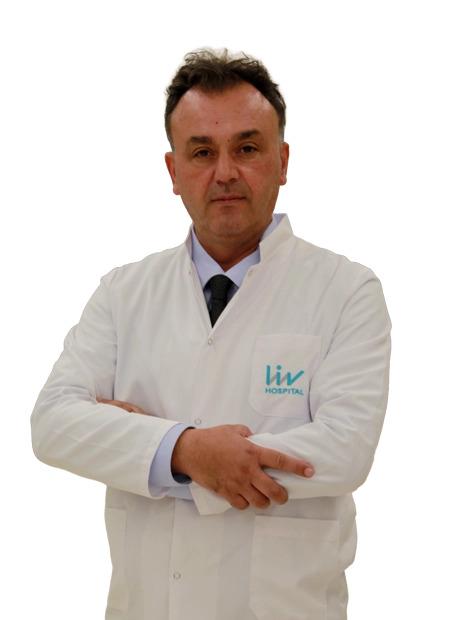Finding cancer early is key to successful treatment. We’re seeing big steps forward in blood tests for cancer. Now, catching cancer early is quicker and more precise than before.

Cancer screening has gotten better with new blood tests. These tests are among the many tools doctors use to find and understand cancer.
We’ll look at the different blood tests that show cancer signs. We’ll also talk about how recent improvements have made them more reliable.
Key Takeaways
- Cancer blood tests are key for early detection.
- There are many blood tests for cancer screening.
- New advances have made blood tests more reliable.
- Blood tests are just one tool in cancer diagnosis.
- Knowing about the different blood tests is important.
The Science Behind Blood Tests for Cancer Detection
Blood tests can find cancer by looking for special markers in the blood. These markers are substances that show cancer is present. They are found in the blood because cancer cells release them.
Cancer cells let go of biomarkers into the blood in different ways. As cancer grows, it can spill cells and parts of cells into the blood. These biomarkers can show that cancer is there. They are the key to finding cancer through blood tests.

How Cancer Cells Release Biomarkers into Bloodstream
Cancer cells release biomarkers into the blood in several ways:
- Cell Death: When cancer cells die, they spill their contents into the blood.
- Cell Signaling: Cancer cells send out signaling molecules that get into the blood.
- Tumor Shedding: Cancer cells can break off from the main tumor and get into the blood.
Types of Cancer-Related Changes Detectable in Blood
Blood tests can spot different signs of cancer, like:
- Abnormal Protein Levels: Some cancers cause proteins in the blood to be too high or too low.
- Circulating Tumor DNA: Cancer cells can release DNA into the blood, which tests can find.
- Changes in Blood Cell Counts: Some cancers can mess with blood cell making, showing up in a CBC test.
Knowing how these changes happen helps doctors understand blood test results. It guides them in diagnosing and treating cancer.
Complete Blood Count (CBC Test): The First Line of Cancer Screening
Cancer screening often starts with a simple blood test called the Complete Blood Count (CBC). This test is key in finding health issues, including cancer. We’ll look at what a CBC test measures, how it can show cancer signs, and its limits.
Components of a CBC Test and What They Measure
A CBC test checks the types of blood cells in your blood. It gives important info about your health. The main parts of a CBC include:
- Red Blood Cells (RBCs): Carry oxygen throughout the body.
- White Blood Cells (WBCs): Help fight infections.
- Platelets: Important for blood clotting.
- Hemoglobin: A protein in RBCs that carries oxygen.
- Hematocrit: The proportion of RBCs in the blood.
Abnormal levels can show health problems, like infections or anemia, and sometimes cancer.

Abnormal CBC Results That May Indicate Cancer
A CBC test isn’t a sure way to find cancer. But odd results can mean you need more tests. For example:
- A high or low white blood cell count might mean leukemia or lymphoma.
- Low red blood cell count or hemoglobin levels could be anemia, linked to cancer.
- Odd platelet counts might show bone marrow problems, possibly leading to cancer.
It’s important to remember that odd CBC results don’t always mean cancer. They usually need more tests to figure out what’s wrong.
Limitations of CBC Testing for Cancer Detection
Though the CBC test is useful in cancer screening, it has its limits. It can’t say for sure if you have cancer. Many things can affect blood cell counts. So, if a CBC shows odd results, you’ll likely need more tests to find the cause.
Getting diagnostic tests can be stressful. But early detection through CBC tests and more tests can really help with cancer treatment.
Tumor Marker Blood Tests: Specific Indicators of Cancer
Tumor marker blood tests have changed how we find cancer. They look for special substances in the blood that cancer cells make. This helps doctors find and track different cancers better.
Common Tumor Markers
Many tumor markers have been found, each linked to certain cancers. Here are some common ones:
- CEA (Carcinoembryonic Antigen): Seen in colorectal, lung, breast, and pancreatic cancers.
- AFP (Alpha-fetoprotein): Linked to liver cancer and some germ cell tumors.
- PSA (Prostate-Specific Antigen): Mainly used for prostate cancer screening.
- CA-125: Often high in ovarian cancer.

Cancer Types Associated with Specific Tumor Markers
Each tumor marker is linked to different cancers. This makes them useful for finding and tracking cancer. For example:
- PSA is mainly for prostate cancer screening.
- CA-125 helps monitor ovarian cancer.
- CEA can be high in colorectal, lung, and breast cancer.
False Positives and Negatives in Tumor Marker Testing
Tumor marker tests are helpful but not perfect. False positives happen when a test says there’s cancer when there isn’t. This can be due to other health issues. On the other hand, false negatives occur when a test misses cancer that’s there. It’s important to know about these issues to understand test results correctly.
When using tumor marker blood tests for screening, we need to keep these points in mind. By using these tests along with other tools and doctors’ checks, doctors can get more accurate results. This helps in making better treatment plans for patients.
CA-125 Blood Test: The Primary Screening Tool for Ovarian Cancer
The CA-125 blood test is key in finding ovarian cancer. It checks for CA-125, a protein in the blood. This protein is higher in women with ovarian cancer.
Normal vs. Elevated CA-125 Levels
A normal CA-125 level is below 35 U/mL. But, high levels don’t always mean ovarian cancer. We must look at other tests and doctor’s opinions too.
The CA-125 test alone is not enough. It has its limits in being specific and sensitive.
Sensitivity and Specificity of CA-125 Testing
The test’s sensitivity is how well it finds ovarian cancer. It works well but not perfectly. The specificity, or how well it misses ovarian cancer, is also important. Finding the right balance is key for good screening.
- Sensitivity: The CA-125 test finds many cases of ovarian cancer, but not all.
- Specificity: High CA-125 levels can also mean other conditions, not just ovarian cancer.
Non-Cancer Conditions That Can Elevate CA-125
High CA-125 levels are not just for ovarian cancer. Many non-cancer conditions can also raise levels. These include:
- Menstruation
- Pregnancy
- Endometriosis
- Uterine fibroids
- Pelvic inflammatory disease
These conditions show why we need to look at CA-125 results carefully.
In summary, the CA-125 blood test is important for ovarian cancer screening. But, it should be used with other tests for the best results.
Multi-Cancer Early Detection (MCED) Blood Tests: The Carcimun Breakthrough
Carcimun is leading the way in cancer detection with a new method. Multi-Cancer Early Detection (MCED) blood tests are a big step forward. They can find many types of cancer at once.
How MCED Tests Detect Multiple Cancer Types Simultaneously
MCED tests, like Carcimun, use new tech to spot cancer biomarkers in one blood test. They use smart algorithms to look at DNA and other signs of cancer.
Key features of MCED tests include:
- Simultaneous detection of multiple cancer types
- Advanced biomarker analysis
- Minimally invasive blood test
Clinical Evidence: 95.4% Accuracy and 90.6% Sensitivity
Studies show MCED tests work well, with Carcimun being 95.4% accurate and 90.6% sensitive. This means they can find cancers early and often.
“The development of MCED tests is a game-changer in cancer diagnosis, making early detection and saving lives possible.”
Expert Opinion
Who Should Consider MCED Testing
MCED tests aren’t for everyone. But, people with a family history of cancer, past cancer, or other risk factors might benefit.
Always talk to a doctor to see if MCED testing is right for you.
Circulating Tumor Cell Detection: The TruCheck Approach
TruCheck is revolutionizing cancer screening with its new method for finding circulating tumor cells (CTCs). CTCs are cancer cells that break off and travel in the blood. They can lead to new tumors. Finding these cells is key to understanding cancer’s spread.
Entry of Circulating Tumor Cells into the Bloodstream
CTCs enter the blood by breaking into blood vessels. This complex process involves many molecular interactions. Once in the blood, they can travel to other parts of the body, starting new tumors.
TruCheck’s High Sensitivity and Specificity
TruCheck shows 90% sensitivity and 96.4% specificity in finding CTCs. This means it accurately spots most cancer patients while avoiding false alarms. Such precision is vital for diagnosing and treating cancer effectively.
- High Sensitivity: TruCheck catches a high number of actual cancer cases.
- High Specificity: TruCheck cuts down on false positives, saving patients from unnecessary tests and worry.
Availability and Cost of TruCheck Testing
TruCheck is slowly becoming more common. If you’re thinking about this test, talk to your doctor about where to get it and the cost. Insurance coverage can vary, so knowing the financial side is important.
Methylation-Based Blood Assays: Detecting Cancer DNA Patterns
Methylation-based blood assays are a new way to find cancer early. They look at DNA changes in the blood to spot cancer. This method is based on how DNA methylation changes in cancer cells.
The Science of DNA Methylation in Cancer
DNA methylation is a key epigenetic change that affects gene expression. In cancer, it can silence genes that stop tumors or turn on genes that cause them. These assays find specific methylation patterns linked to cancer types.
“The ability to detect cancer through DNA methylation patterns in blood samples offers a non-invasive and potentially life-saving diagnostic tool,” as emphasized by recent studies in the field of epigenetics and cancer research.
Current Performance: 67.6% Sensitivity for Early-Stage Cancers
Studies have shown that methylation assays can spot up to 67.6% of stage I“III cancers. This means they can find many early cancers, helping doctors act fast.
The success of these assays shows their value in cancer screening. As research grows, we expect these tests to get even better at finding cancer early.
Future Developments in Methylation Testing
As we learn more about DNA methylation in cancer, we’ll see big improvements in testing. Future steps might include adding more biomarkers, making tests more accurate, and finding cancer types earlier.
Key areas of future development include:
- Enhancing assay sensitivity and specificity
- Identifying novel methylation biomarkers
- Integrating methylation-based assays with other diagnostic modalities
By improving methylation-based blood assays, we’re getting closer to finding cancer early and accurately. This will help patients get better care sooner.
Artificial Intelligence in Blood Test Analysis
Advanced AI technologies are making blood tests for cancer screening more accurate. AI is changing how we detect cancer by analyzing blood tests. It uses algorithms to process data better than old methods.
Improving Cancer Detection Accuracy
AI algorithms find patterns in blood test data that show cancer. They look at lots of data to spot cancerous conditions accurately. This helps find cancer early and avoid false positives.
Studies show AI can be 92% accurate with false positives under 2%. This means fewer unnecessary tests and less stress for patients.
Diagnostic Accuracy Achieved
AI in blood test analysis is a big step forward in cancer detection. It’s 92% accurate, which is very effective. It also cuts down on false positives, improving patient care and saving money.
- High diagnostic accuracy
- Low false-positive rates
- Improved patient outcomes
Reduced Turnaround Times for Test Results
AI also makes getting test results faster. It can analyze data quicker than doctors, leading to quicker treatment plans. This is key in cancer, where fast action is critical.
“The use of AI in blood test analysis is revolutionizing cancer detection by providing faster and more accurate results.”
Expert Opinion
Predictive Models Using Full Blood Count Trends
Predictive models can spot cancer risks early by looking at blood count changes. They use data from regular blood tests. This makes them a key tool in cancer screening.
How Subtle Changes in Blood Counts Can Indicate Cancer
Small changes in blood counts can hint at health problems, like cancer. Predictive models look for these patterns. For example, changes in white blood cells or platelet counts can be warning signs.
These models find hidden issues that doctors might miss. They help doctors start more tests sooner. This can lead to better health outcomes for patients.
The ColonFlag Model: 0.81 C-Statistic for Colorectal Cancer Risk
The ColonFlag model is a top example of predictive modeling. It accurately predicts colorectal cancer risk. With a c-statistic of 0.81 for 6-month risk, it shows how predictive models can help.
“The ColonFlag model represents a significant advancement in the early detection of colorectal cancer, utilizing routine blood count data to predict cancer risk.”
Monitoring Blood Count Patterns Over Time
Watching blood count changes over time is key. It helps doctors spot who might get cancer. They can then start the right tests or screenings.
- Regular blood count monitoring can help in early detection.
- Predictive models can analyze trends to predict cancer risk.
- Early intervention based on predictive model outputs can improve patient outcomes.
We think using predictive models with blood count data is a big step in fighting cancer. These tools help us find cancer risks sooner and more accurately.
The Process of Getting Blood Tests for Cancer Screening
Blood tests for cancer screening are key in preventive healthcare. They help spot cancer early, even before symptoms show. This makes them vital for keeping your health in check.
When to Consider Cancer Screening Blood Tests
When to get cancer screening blood tests depends on several things. These include your age, family history, and risk for certain cancers. It’s important to talk to a healthcare provider about when to start screening. They can look at your risk factors and suggest the right tests.
What to Expect During the Testing Process
A healthcare professional will take a blood sample from your arm during a test. The process is quick and simple. The blood is then tested for cancer biomarkers in a lab. You might feel some pain or bruising where the needle was, but it’s temporary.
Insurance Coverage and Out-of-Pocket Costs
Insurance coverage for cancer screening blood tests varies. Many plans cover tests for those at high risk. But, some tests might not be covered or could cost extra. It’s important to check with your insurance to know what’s covered and what you might pay for.
Knowing about cancer screening blood tests and their costs helps you make better health choices. By talking to your healthcare provider and understanding your insurance, you can take steps towards early detection. This could save your life.
Interpreting Your Blood Test Results
Understanding blood test results can be tricky but very important. When you get your results, knowing what they mean is key. It helps you figure out what to do next for your health.
Understanding Reference Ranges and Abnormal Values
Blood test results come with reference ranges, which show what’s normal. Values outside these ranges might mean there’s a health problem. For example, a Complete Blood Count (CBC) test checks your blood’s different parts.
Knowing if your results are in the normal range is the first step. The Cleveland Clinic says it’s vital to understand these ranges and values. Also, remember that different labs might have slightly different ranges. Always talk about your results with your doctor.
When Additional Testing Is Necessary
If your results show something abnormal, you might need more tests. This could be more blood tests, imaging, or other tests. For instance, if your CBC shows an odd white blood cell count, your doctor might do more tests.
It’s important to do what your doctor says for more tests. This helps get a clear diagnosis and the right treatment.
Questions to Ask Your Doctor About Blood Test Results
When talking to your doctor about your results, ask questions. Some good ones are: “What do my test results mean?” “Are there any abnormal values that need further investigation?” and “What are the next steps in my diagnosis or treatment?”
- What are the implications of my test results for my health?
- Are there any lifestyle changes I should make based on my results?
- How will we monitor my condition going forward?
By asking these questions and understanding your blood test results, you can be more involved in your healthcare. This helps you make better decisions about your treatment.
“Understanding your blood test results empowers you to take control of your health.”
” Healthcare Professional
Conclusion: The Future of Blood-Based Cancer Detection
Recent advances in blood-based cancer detection tests are changing how we diagnose cancer. Technologies like Multi-Cancer Early Detection (MCED) and methylation-based assays are making it easier to find cancer early. This could lead to better treatment options and save lives.
We’re seeing big steps forward in blood-based cancer detection. Tests like MCED are very accurate and sensitive. These breakthroughs could change how we fight cancer, making diagnosis and treatment better.
As research keeps improving, we’ll see even better tests for early cancer detection. Blood-based tests are likely to play a big role in the future of cancer care. This brings hope to patients and doctors alike.
The use of artificial intelligence and machine learning is making blood-based tests even more reliable. As we go further, using these tests for cancer screening will become more common. This is a promising development for cancer care.
FAQ
Can a CBC test detect cancer?
A CBC test can hint at cancer’s presence. But it’s not a sure way to diagnose cancer. If the test shows something odd, more tests are needed.
What is the CA-125 blood test used for?
The CA-125 test is mainly for ovarian cancer screening. It also helps track how well the treatment is working and if the cancer might come back.
What are tumor marker blood tests?
Tumor marker tests find proteins in the blood linked to cancer. For example, CEA, AFP, and PSA are linked to different cancers.
How accurate are MCED blood tests?
MCED tests are very good at finding many cancers at once. They have a 95.4% accuracy rate and a 90.6% sensitivity rate.
What is the TruCheck approach to cancer detection?
The TruCheck method finds cancer cells in the blood. It’s 90% sensitive and 96.4% specific, making it a non-invasive way to detect cancer.
How does AI improve cancer detection in blood tests?
AI helps by looking at blood data patterns. It boosts detection accuracy and cuts down on false positives. AI’s accuracy rate is 92%.
What is the ColonFlag model used for?
The ColonFlag model uses blood counts to guess colorectal cancer risk. It has a C-statistic of 0.81, showing it’s very good at predicting.
How do I interpret my blood test results?
It’s important to know what normal and abnormal values mean. Talk to your doctor about your results. They can tell you if more tests are needed.
Are blood tests for cancer screening covered by insurance?
Insurance coverage for cancer screening blood tests varies. It depends on the test, your insurance, and your policy. Always check with your insurance to know what you’ll pay.
Can blood tests detect cancer at an early stage?
Yes, some tests like MCED and methylation-based assays can find cancer early. This could lead to better treatment outcomes.
References
- National Cancer Institute. (2023). Tests and Procedures Used to Diagnose Cancer. Retrieved from https://www.cancer.gov/about-cancer/diagnosis-staging/diagnosis – This comprehensive resource from the National Cancer Institute provides an overview of various diagnostic tests, including the Complete Blood Count (CBC), and explains their use in cancer detection and monitoring.

































